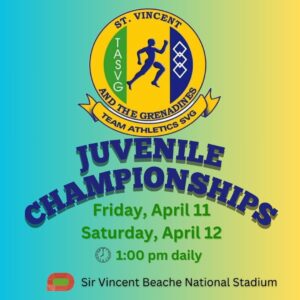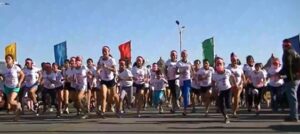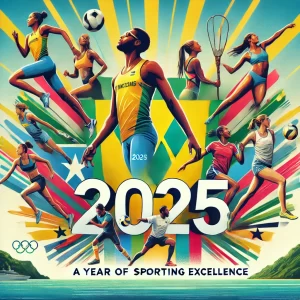SVG’s Football Status – implications
Over the past several months, Vincentians have been observing the fortunes of the senior national team, Vincy Heat. Admittedly, the fortunes have not been particularly good.
For the casual observer, the fact that the SVG Football Federation (SVGFF) has been, over the past several years, been in receipt of substantial annual financial grants to facilitate the organisation’s work, which is essentially, to develop the game in the country to the point where incremental improvements are evident.
Recent performances of Vincy Heat have left many of our sport fans sadly disappointed, pondering what is happening, and what could be done to lift the sport out of the morass into which it has obviously descended.
Football history
Writing in The Vincentian newspaper dated, 15 November 2012, Glenford Prescott briefly reminded us of all of the renowned 1979 Vincentian football team. That was the year that the national team, competing in the Caribbean Football Union (CFU) Tournament, finished second. The remarkable feat remains a fond memory because of the defeat of Surinam by our players in Surinam, at a time when the South American nation was considered one of the best in the Caribbean.
Prescott, however, spent time addressing the Vincentian national team’s record against Trinidad and Tobago through the years, a rather interesting aspect of Vincentian footballing history.
It was unfortunate that at the time of the 1979 team’s successes, St Vincent and the Grenadines had no facility that enabled us to be included in the FIFA World Cup preliminaries. Victoria Park was considered too small and Arnos Vale, at the time, was rejected because of the cricket wicket in the centre of the field having been too high. FIFA required a generally flat surface.
As it the case today, the lack of initiative and a commitment to sport was sadly lacking. Cricket was ‘king’ and football, despite its rapid growth at the level of grassroots people around the country, did not have the economic and/or political clout to get the governmental authorities to do what was required to enable the football federation to get FIFA’s nod.
Some may recall the ongoing disputes led by youngsters, avid followers of football everywhere, eager to play the game here, and the cricket authorities over access to the playing fields at Victoria Park and Arnos Vale. It was the continuing aggression of the players of football that eventually led them to access Victoria Park and literally ‘drive’ cricket out of that part of Kingstown.
It is also the reason why, some years ago, when some of the hard-line cricketers began to contemplate bringing back a cricket wicket to the Victoria Park the footballers in Kingstown quickly responded by ensuring it remained nothing more than a pipe-dream.
In the 19902, having finally gained FIFA’s recognition and membership, the SVGFF entered the FIFA World Cup Preliminaries for the first time. We participated in the FIFA World Cup Preliminaries for 1994, for which the finals were scheduled for the USA, for the first time.
The occasion was met with a decision to engage many of the older players who had once, in their much younger days, displayed remarkable talent. Some who were not so ‘good’ in the game also returned to play, causing much surprise amongst those at home.
It did not take very long before it was recognised that several of those who returned had long since passed their prime in the sport and also lacked the fitness level required.
Elliot ‘Mori’ Millington, as coach of the team, got the best he could out of the team and took them past the first round of the Preliminaries.
As they got ready for the second round, he admitted to the SVGFF that he needed help from a more experienced coach and requested the services of former Trinidad and Tobago player and a young, entertaining coach, Everard ‘Gally’ Cummings. The latter had agreed but on one condition. It was that he would not want any involvement by Austin ‘Jack’ Warner. The latter was involved, and Cummings withdrew. Warner then recommended Jorge Ramos. The rest is history as the team ended the second round with a total of 29 goals, 11 of which were scored by Mexico in that country’s high-altitude Azteca Stadium, having been scored against them. That was our initiation to the FIFA World Cup.
Very recent past
In 2021 and again this year, 2022, we have witnessed the continued sometimes abysmal performances of Vincy Heat.
The national team has lost to Dominica, a feat that has not been achieved for decades.
When many had forgotten the humiliation of the 11-nil defeat at the hands of the Mexicans on their own home soil, we recently received a 10-nil drubbing from Guatemala, five goals scored in each of the two halves of the game.
Most recently, we had a remarkable poor performance in the four matches in 10 days. Ahead of the foregoing matches, Rohan Thomas, writing in the Searchlight newspaper dated 3 June, observed, “It is no gainsaying that St Vincent and the Grenadines’ senior male football team, Vincy Heat is not in the best place to take on Bahamas, Nicaragua and Trinidad and Tobago”.
Thomas noted that there were several ‘debilitating factors’ at work that would have left the team generally underprepared. He wrote, “Among them are the many off the field issues which have, unfortunately filtered into the psyche of the players. Seemingly, crises have become the norm whenever this men’s team is on the verge of competing in a major regional tournament.
“Of note too, has been the defeats against Dominica last month in two friendly internationals. The losses again raised concerns about the team’s prospects in the Nations League.
“Significantly too, the team’s performance was dissected by the general public who were in general unkind to the players.
“Added to the mix was the covid attack that affected the team both here and in Dominica, that definitely adversely affected preparations and robbed the team of vital tactical fine tuning leading up to the four matches in this June window.
“All told, the Vincentians are up against it as they seek to deliver and do so with some aplomb and confidence”.
Thomas’ prognosis was spot on.
The team lost to The Bahamas, drew with Nicaragua, and lost to Trinidad and Tobago once here and the other in the twin-island Republic.
There is talk of the possibility that the national coach may not stay on in his current role.
The heads of the sport’s leadership, administrative and technical, appear bowed as in being decidedly bothered.
Patrons of the sport are sorely disappointed and ponder what the future holds for the sport in St Vincent and the Grenadines.
Development
Close examination of the sport’s rocky ride through history nonetheless raises many questions. For sure, this country, small as it is, possesses an abundance of talent and we have seen it displayed in many fields of endeavour.
We have had many footballers with outstanding skills. The successful team of 1979 proved that if adequately prepared, our players could prove themselves worthy of being on the big stage. But we have not always been adequately prepared, and we have not engaged in a sufficiently scientific approach to the development of the sport and the nurturing of talent available to us.
The fact that the SVGFF receives an annual grant from FIFA does not immediately translate into a change in the organisation’s fortunes. Everything takes time.
The administration of the sport has to be trained to an appreciation of the current status of the sport in the nation, identification of strengths and weaknesses and establish a structure consistent with the results of their analysis.
The SVGFF has to engage professional personnel in areas of the sport’s development in order to ensure ‘horses for courses’. This is not a time for amateurs to be in positions for which they are not appropriately trained.
A number of persons have already been employed by the SVGFF. But there must be an understanding that in the business of sport it is a matter of payment by results. This is a sport in which success is demanded from technical staff.
We are all of an understanding that it takes time to mould a team for success. However, the sport-loving public need to be in-the-know regarding the work being undertaken so that they could, themselves, monitor the progress of the different players being trained. The public constitute an important stakeholder grouping. That is the reason they are so badly pained when the team is humiliated in any game.
The SVGFF has certainly shown itself as having developed a better marketing strategy. This needs to be continually reviewed and where necessary, appropriate modifications made. Information must be constantly fed to the public to support the marketing plan. This enables supporters to be attentive to the game’s and players’ development.
Across the world, football is big business. The SVGFF cannot conduct its affairs at an amateur level, hoping to make an impact on the world stage without first climbing up the ladder of success in the Caribbean. Indeed, we must first come to dominate the Windward Islands even before we contemplate the OECS and the wider Caribbean.
The 11-nil defeat at the hands of Mexico in 1992 and the recent 10-nil flogging at the hands of Guatemala are still haunting or football.
In 1992, we held Jamaica to a 3-3 draw in a friendly and have always been a thorn in the sides of Trinidad and Tobago. This year however, we received a double beating, at home and abroad, in a matter of days.
Somehow, even as we struggle to put appropriate measures and personnel in place, the expectation of the Vincentian lovers of sport is that they need to get a sense of security that ‘there is light at the end of the tunnel’.
For now, however, the SVGFF and the lovers and supporters of the sport of football in St Vincent and the Grenadines must accept the losses of our national team.
The SVGFF needs to satisfy itself that there is an appropriate development plan, strategy, and objectives for success in the future.





